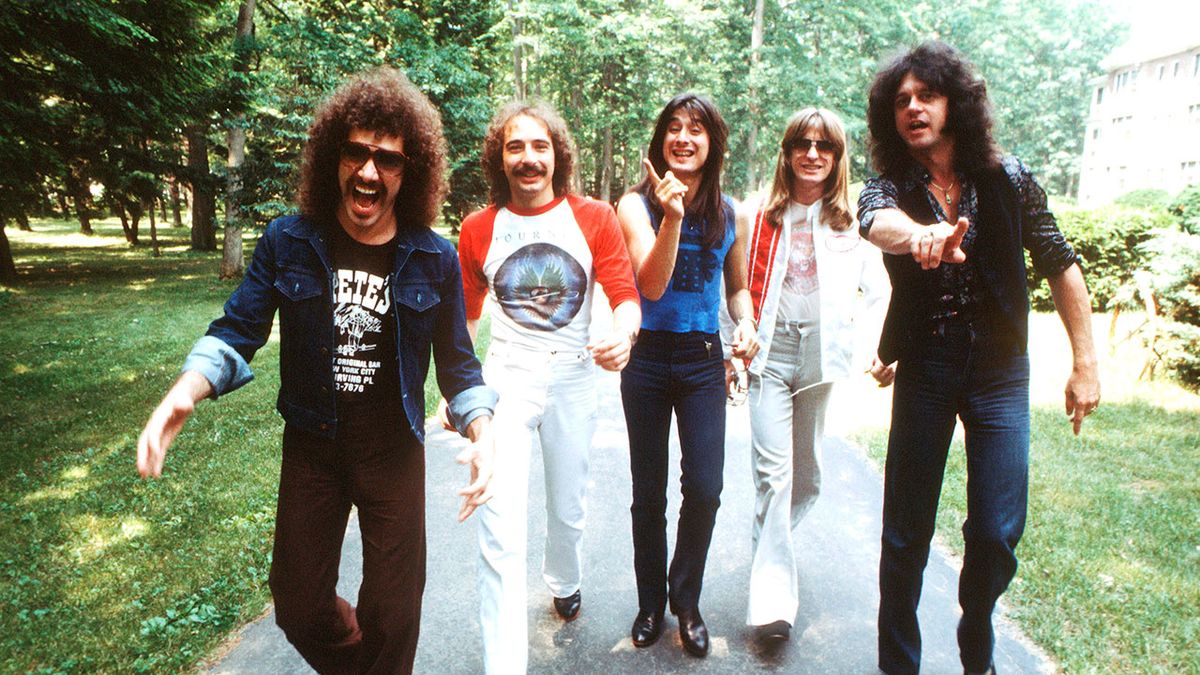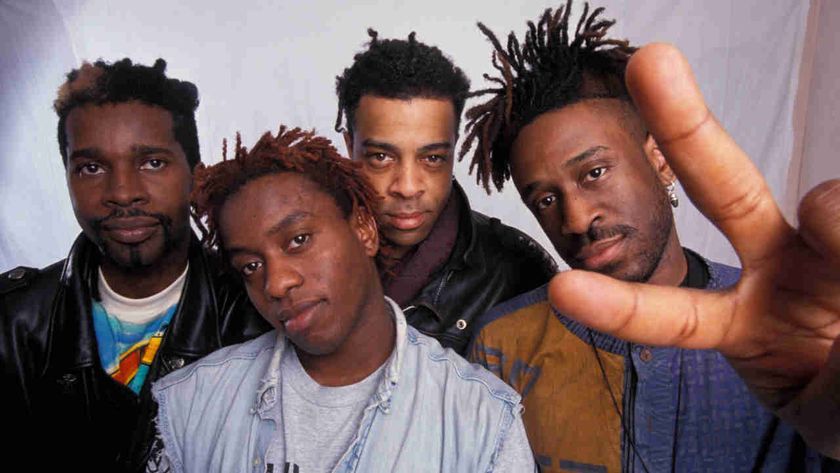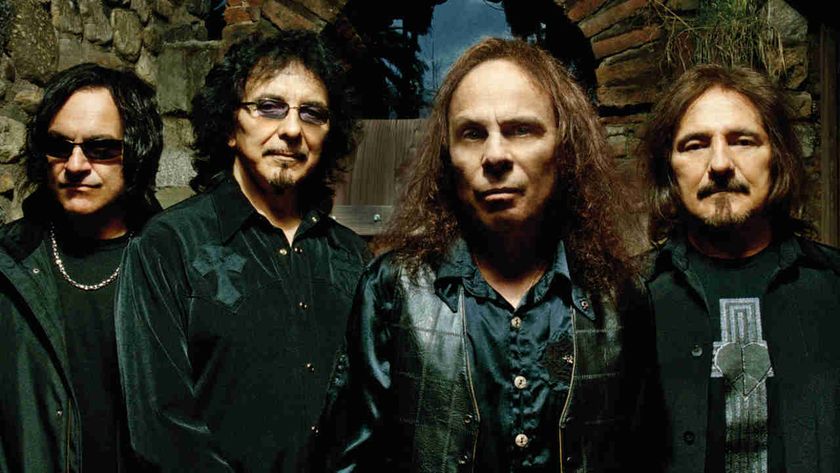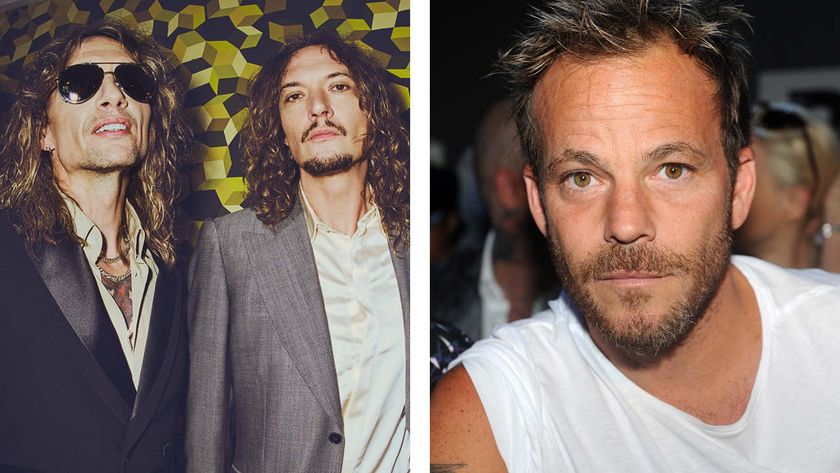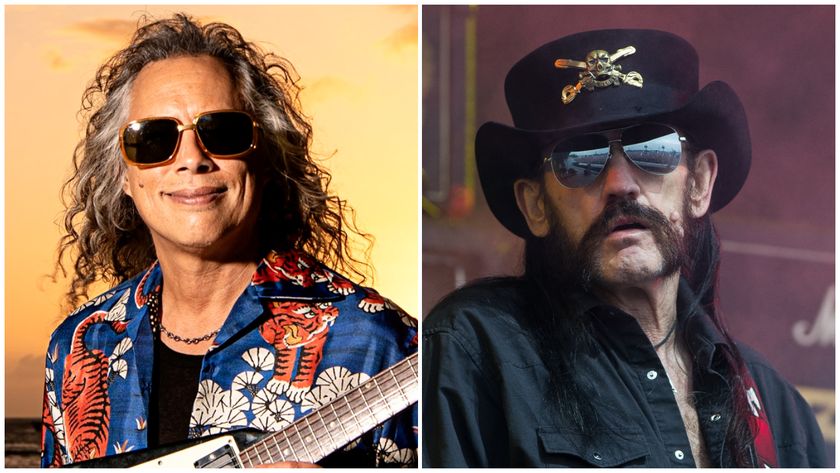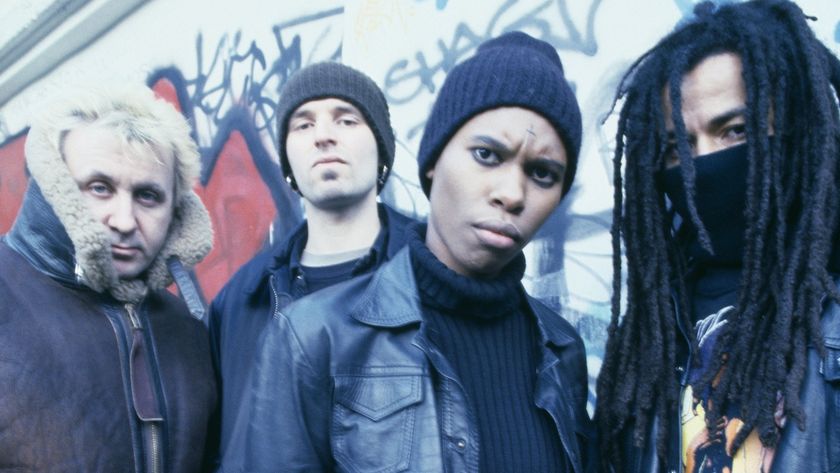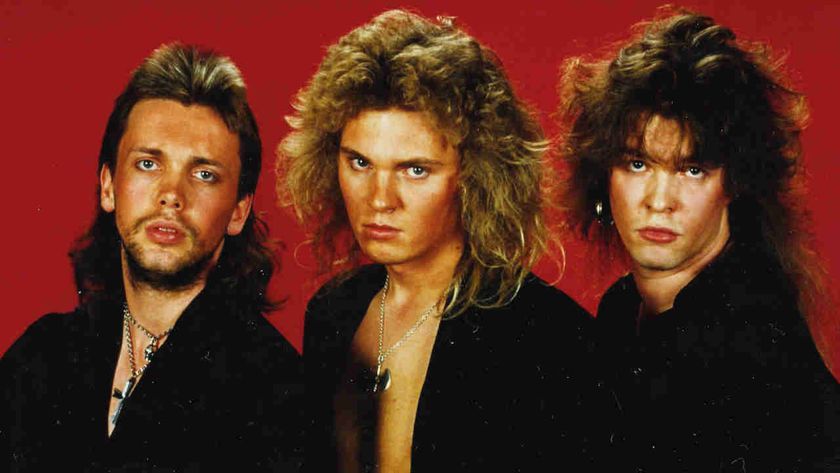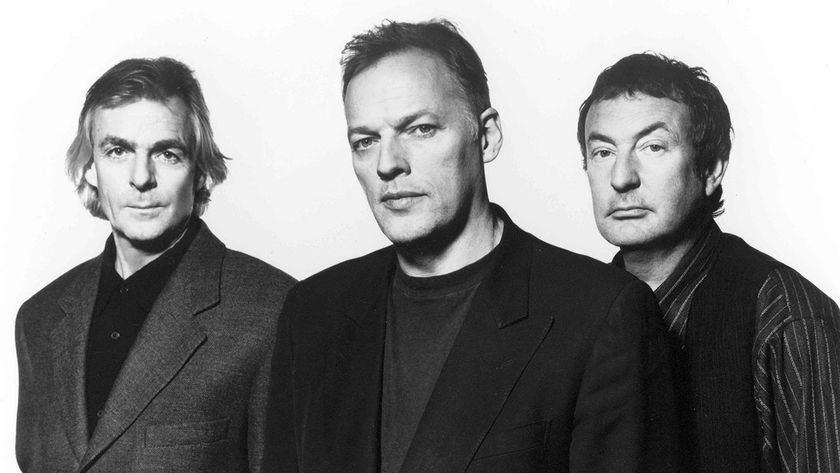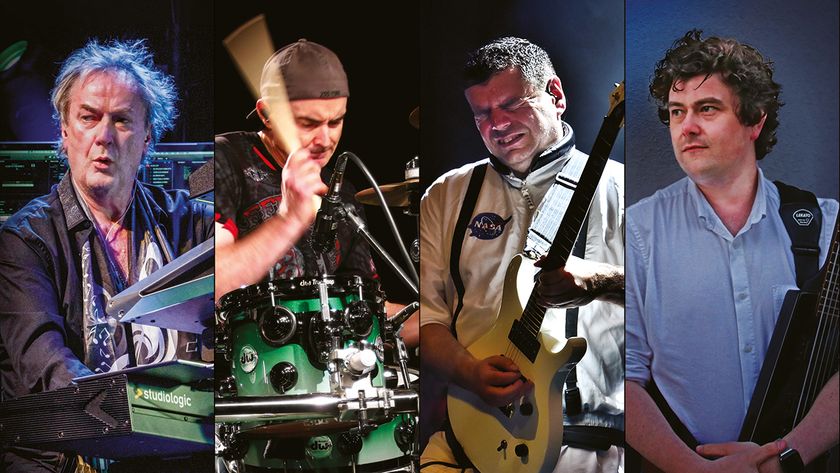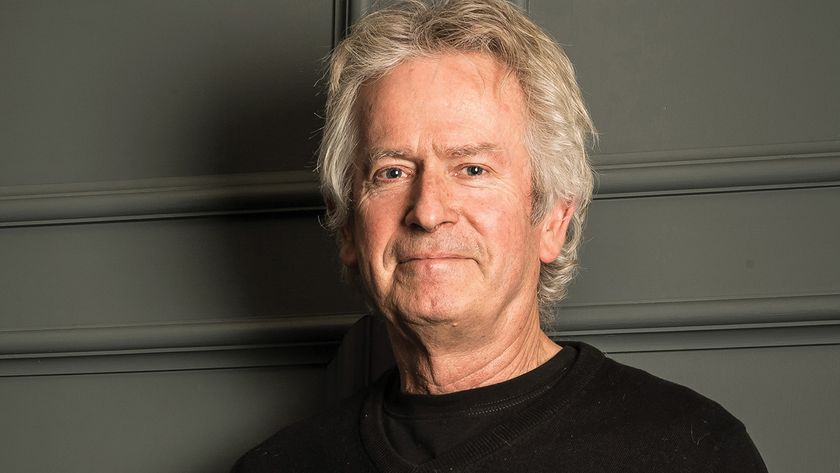Rock’s historians have conveniently sidelined the Adult (some prefer Album) Orientated Rock scene of the 1970s. Today it seems that many critics traditionally mock the progenitors of melodic rock for shaggy perms, tight satin strides and excessive use of keyboards – or completely ignore them. Which is a shame, as the chart domination of Journey, Boston, Styx, Foreigner et al is often erroneously seen as an irrelevant footnote of the decade’s music.
And yet the statistics speak for themselves. It was unfashionable Styx that became the first group to enjoy four consecutive triple-platinum albums (1977’s The Grand Illusion through Paradise Theater in 1980). It was Journey and Styx that flew between shows in private jets. It was Boston whose self-titled debut went on to sell over 16 million copies in the US alone. And despite being snubbed by every talent scout in America, Foreigner burst out of the box with their own quadruple-platinum debut.
Perhaps more impressive still, many of the same bands would surpass these achievements during the next decade. And while the satin trousers might be tighter than ever, and wimp-rock no longer rules the airwaves, all of these bands still exist in one form or another.
Journey – arguably the first and finest AOR band of them all – had a difficult beginning, as their original progressive jazz rock permutation had struggled to find a record deal. Ironically, it was an ultimatum from Columbia Records to find a lead singer that began their reinvention as a stadium-conquering behemoth. “If we hadn’t been pushed, I don’t think we’d have gravitated that way because I’ve never really been interested in melodic music,” ex-Santana guitarist Neal Schon told Classic Rock in 2000. “I’m a jazz fusion guy.”
With silver-throated crooner Steve Perry at the microphone, Journey struck a rich seam of gold that began with Infinity in 1978. Although tension simmered between Schon and Perry (“He and I have had ups and downs throughout our careers,” admits Neal), for a while the band could do no wrong, especially when joined by ex-Babys keyboard player/guitarist Jonathan Cain for 1981’s Escape album, which topped the Billboard chart and remained in the Hot 100 for an entire year.
“Our career went hog-wild,” recalls bassist Ross Valory, “but people forget that by Escape we’d already released 10 albums and done seven years of work. With Jonathan joining we achieved the perfect combination of players, timing and serendipity to make the phenomenon happen.”
Good housekeeping certainly helped, and in Herbie Herbert, Journey had one of the savviest managers around. Herbert encouraged them to purchase their own stage and lighting rig, the band were partners in the trucking company they used on tour, and they owned all the buildings in which they rehearsed. Furthermore, despite having been steered by their label into the direction that made them stars, Journey soon became successful enough to remove Columbia altogether from the creative process.
“From Frontiers onwards, we handed the record company the finished product – right down to the sleeve layout,” reveals Valory. Journey’s affairs were so organised and smooth running that before too long their modus operandi began to attract attention from even bigger bands.
“When the right combinations of fruit roll up on the slot machine, people want to know how you hit the jackpot,” chuckles Valory, almost gleeful at what he’s about to reveal. “The guy who runs The Rolling Stones’ empire is actually the same big-lipped guy who stands in front of the band. And during the early 1980s, Mick [Jagger] and his staff came to our offices for a week to study the way Herbie worked for us. That’s completely true, and Jagger would admit it.
“It was often said that Journey weren’t musicians at all, just businessmen. To me, if you’re in the music business, and I stress the word ‘business’, you’re there to make money. If you can hold on to it, you’re doing well. And if – as just about every review from those days suggested – we were guilty of being a corporate rock band, the same must be true of The Rolling Stones.”
The bassist confirms an element of competition between the big AOR bands of the 70s (“We toured with Boston and at one point planned on stealing their singer [Brad Delp], but in the end did better without him”), and although Perry, Schon and Cain were more in demand, he has his own tales of being stalked. In 2004, Valory wrote a ‘Guide To Easy Hotel Living’ for Bass Player magazine, which advised placing chewing gum in the lock over the door’s peephole, and making your own Do Not Disturb sign.
After 80 million album sales we’re some kind of post-script, it’s kinda ridiculous
Ross Valory
“We all felt the pressures of stardom,” he acknowledges. “When you become wealthy at a young age there can be lots of ill-advised spending. We all became partied-out, but learned quickly. On top of that, when the spotlights are on you, you have to be good every night.”
Journey made what’s generally regarded as their second-best record, 1986’s Raised On Radio, after Valory and drummer Steve Smith’s departures. “Everyone had enough money and control issues began to surface,” Schon later recalled. Valory has his own view of the self-destruction. “There were inflated egos, and certain people believed they could do things without others,” he surmises.
Reunited in 1996 by Columbia Records’ A&R man John Kalodner for Trial By Fire, Perry bailed on touring plans, citing a hip injury. Ex-Tall Stories/Tyketto vocalist and Perry soundalike Steve Augeri took his place and has enabled Journey to roll into their 30th year. Their latest (and 13th) studio album Generations sold at first to US fans as part of a concert ticket package, and is now available Stateside via Sanctuary Records. In Europe, it was issued via Frontiers.
“After so many years with Columbia/Sony, we were comfortable with leaving,” insists Valory. “They’d become a different company, just as we’ve become a different band. Times have changed.”
The flipside is that reviewers are kinder towards Journey these days than in their heyday, although Valory agrees with the notion that the band’s contribution to popular music remains trivialised.
“We’re barely mentioned in Rolling Stone’s History Of Rock’N’Roll,” he sighs. “Because of all the record sales and attendance and merchandise records that we set, they know that they can’t not mention Journey, so they resort to tokenism. After 80 million album sales we’re some kind of post-script, it’s kinda ridiculous.”
Another band slighted by the ‘corporate rock’ tag were Foreigner. Originally a six-piece, they were formed in New York by Mick Jones. “Those were low blows,” railed Jones a few years later. “What is corporate rock anyway? It’s such a cold, unwarranted term because we put a lot of sweat and heart into those songs. We were a new band and went through changes. We didn’t profess to be the best; we did our growing up in public.”
In fact, Foreigner almost failed to make it off the launch pad at all. Like Journey, the band created some definitive melodic hard rock despite – or maybe because of – creative tension between its two stars. Once again like Journey, the singer and guitarist now pursue their own careers.
When interviewed separately in 1992, Jones had hired ex-King Kobra man Johnny Edwards as the group’s singer, vocalist Lou Grammatico (later Gramm) striking out on his own with future Def Leppard man Vivian Campbell in Shadow King. Even then, neither could agree upon the circumstances of Foreigner’s formation in 1976.
“Lou was in a band called Black Sheep and I knew his voice would connect with my songs,” Jones said. “He was working on a building site and after bad trips with other bands had abandoned music. They had to call him down a ladder to talk to me, but the rest was history.”
“Mick’s memory has failed him,” objected Gramm. “I wasn’t a construction worker, I worked at an auto dealers. My band had made two albums for Capitol but just lost its contract. I certainly wasn’t giving up the music business.”
Whatever the truth of Jones and Gramm’s introduction, the pair were dynamite in Foreigner. Yet with the UK busy puking, gobbing and sporting safety pins, and America about to follow suit, their earliest endeavours (as Trigger) were met by a flow of rejection slips. Enter John Kalodner, then a junior employee of Atlantic Records, who made them his first ever signing.
The touch paper lit, Feels Like The First Time and Cold As Ice became huge US hits, Long Long Way From Home even making America’s Top 10. In one fell swoop, Foreigner’s self-titled debut validated the reputation of Jones, who’d played with Spooky Tooth and Leslie West of Mountain.
“I thought, ‘My God, I deserve this. I paid my dues’. And I’m glad I had the maturity to handle it, because when it came, the success was heady.
“At the same time, though, it was incredible that Foreigner did so well,” he continues. “I was quite prepared to spend three or four years building a career. It even did okay in Britain, too, until punk made our sort of music a dirty word.”
More unlikely still, despite failing to match the consistency of its predecessor, 1978’s Double Vision outsold Foreigner by two-to-one. The band were on fire… literally.
“We were messing around on the song Hot Blooded when my guitar amplifier burst into flames,” grins Jones. “There was smoke all over the studio. When something like that happens, you know you’re on to something good.”
Reacting to press criticism, Foreigner roughed things up a little with their last album of the 70s. Head Games brought them a paltry Top 20 single, plus flak for its sleeve of a young girl scrawling graffiti in a lavatory. “There was also a slur that Dirty White Boy had racial implications, but I’m still fond of the songs,” says Gramm.
Teaming up with future Def Leppard producer Robert John ‘Mutt’ Lange, the sextet reduced to a quartet for 1981’s 4, a record that tore their sound apart and laboriously reassembled it. When the spiritually charged, choir-embellished tearjerker Waiting For A Girl Like You made Foreigner into one of the world’s biggest bands, Gramm felt they began placing too much emphasis on balladry.
“From then on, our rock songs became overlooked,” rues the singer, who departed for Shadow King but returned occasionally. Having defeated a brain tumour back in 1997, Gramm is still working solo, while Jones’ latest incarnation of Foreigner includes Kelly Hansen, ex-Dokken bassist Jeff Pilson and drummer Jason Bonham.
“There’s no animosity,” explains Jones in 2005. “We haven’t talked much lately, just when his father passed away. The split isn’t us being ‘out’ with each another, just Lou doing his own thing.”
Also perceived to have struggled beneath their own worldwide hit, though in reality purveyors of a sizeable and consistently strong catalogue, Survivor formed in the Chicago kitchen of guitarist Jim Peterik in 1978. Peterik and fellow guitarist Frankie Sullivan would write hits in the same room for the next 15 years.
The quintet’s debut featured the minor hit Somewhere In America, their fortunes escalating with Premonition in 1981. But it took a phone call from Sylvester Stallone to project Survivor on to the world stage. Peterik still recalls the invitation to write the theme tune to the third Rocky movie, Eye Of The Tiger, like it happened yesterday.
“I wish I’d kept the answerphone message,” he laughs, before launching into a decent impersonation: “Yo, Jim. This is Sylvester Stallone. Gimme a call. We need to talk.” Peterik assumed he’d been the victim of a prank until he learned Sullivan had received an identical call.
Survivor were sent rushes of the movie, requesting something “with a pulse” that would match punches being thrown in the fight sequences. “It had to connect with the kids,” states Peterik, adding: “Thankfully, I was young enough to write like that. Frankie and I put the song together in an hour and a half, then fine-tuned it the next week, but we’d been collecting the ideas behind it for years. Eye Of The Tiger was almost a parallel story to the Rocky movie. We’d been trying to break through to the arena level of Journey and Foreigner, and that song finally made it happen.”
Eye Of The Tiger topped the Billboard singles chart for seven weeks, brought a Grammy and an Oscar nomination, and became the title song of their third album. Sadly, Bickler began to experience voice problems during the tour that followed.
“We opened for REO Speedwagon and although we didn’t know it, half the audience of 25,000 were there to see Survivor,” smiles Peterik. “We felt like underdogs, but we were hot stuff.”
Asked whether his band enjoyed the perks of new-found fame, Peterik responds: “My grooviest days came before Survivor, when the band The Ides Of March had a hit [with Vehicle in 1970] and toured with Led Zeppelin, Jimi Hendrix and Janis Joplin. At Led Zeppelin’s post-show party there’d be groupies, and all your drugs and booze. After that, Survivor tended to watch from the sidelines. It’s probably why we lived to tell the tale.”
Bickler retained his place for a while, but new singer Jimi Jamison was featured on 1984’s Vital Signs, which produced three further Top 10 singles (I Can’t Hold Back, High On You and The Search Is Over). Stallone then commissioned Burning Heart, a theme for Rocky IV in 1985, though this time the collaboration wasn’t as smooth. “When we finished, Stallone wanted a little more,” relates Sullivan. “He came up with the whip in the chorus. It went to No.2, which wasn’t bad.”
The same was also becoming true of Survivor, and after downsizing to a trio of Jamison, Sullivan and Peterik, 1988’s When Seconds Count sold disappointingly. When Jamison went off to make solo records, the band wound down, reuniting again in 1993. “We rehearsed with Jimi, but he put together his own version of Survivor,” explains Peterik. “So we got Dave Bickler back. But that meant there were two versions of Survivor…”
Jamison and Sullivan pooled forces and will release a new Survivor CD in the spring of 2006. Peterik performed with Sullivan and Jamison for the first time in 15 years at a benefit for hepatitis C- stricken ex-Toto singer Fergie Frederiksen. “First I was asked if I’d be happy to play with Jimi, then Fergie wanted to know if I was okay with Frankie being added,” chuckles Peterik. “I said: ‘It sounds like a reunion to me’. In the end, though, Survivor go their path and I stick to mine.”
Indeed, having discovered a young singer called Toby Hitchcock, Peterik’s current vehicle Pride Of Lions have released two critically acclaimed CDs. “It’s classic 80s rock, like I did with Survivor,” he confirms. “Big choruses; huge drums; enormous melodies. The first time I heard this 27-year-old kid sing there were echoes of Jimi Jamison, Tommy Shaw [Styx], Bobby Kimball [Toto] and Dennis De Young [Styx] – all in one voice.”
Tom Scholz and his band, Boston, almost made a science out of rock music. With a Masters degree in Mechanical Engineering and a promising career as a senior product design engineer for Polaroid, Massachusetts-based Scholz recorded a six-song demo tape between 1973 and 1975. Tom’s wife Cindy mailed copies to every major record label, but despite featuring a rough version of one of the most played songs of all time, More Than A Feeling, none were interested.
A&R men would soon be hanging their heads in shame. Slick, powerful and ridiculously hook-laden, the Boston sound was technically and artistically unlike anything ever heard before. Its timeless, euphoric collection of diamond-hard melodies and raucous anthemic rock found a niche that hooked radio programmers and fans alike. Released in August 1976, Boston’s eponymous first album stayed on the Billboard chart for 101 weeks, becoming the biggest-selling debut in recording history. Their first single, More Than A Feeling made the Top 5, its chord sequence later inspiring Kurt Cobain to write Smells Like Teen Spirit. Vindicated but cautious as ever, Scholz finally consigned the laboratory coat to the closet and quit his day-job at Polaroid.
Tom remained media-shy, and bizarre rumours began to circulate. It was suggested that Scholz had discovered the formula that enabled him to write perfect pop rock by feeding past hit records into a computer and analysing the results. His company, Scholz Research & Development, then made the Boston sound available to the masses via a portable amplifier called the Rockman.
Boston began their second album in late ’77. Epic Records were understandably anxious to maintain the success of the debut, but Scholz wouldn’t be hurried. Don’t Look Back finally hit the racks in mid-1978. Despite poor reviews, it immediately went double platinum but failed to replicate its predecessor’s impact. Scholz would later all but disown the album. “It came out a year after the record company wanted it, but Don’t Look Back was rushed,” he admitted. “I let it go early. Next time I won’t listen to anybody.”
Sticking to his word, Scholz played all the instruments on the third album, commencing in 1980. Its tortoise-slow genesis irked the other members of Boston, who set up solo projects.
“The pressure to magically create more music to appease growing appetites was becoming unbearable,” explained Scholz. “I was the goose that laid the golden eggs, and they weren’t coming fast enough.” In a desperate bid to speed things up, Epic withheld royalties for Boston’s first two albums. When that failed, a $20 million breach-of-contract lawsuit followed. Scholz then counter-sued, and the band switched labels to MCA.
And still the tumbleweeds rolled by. Many who still cared assumed that Boston had called it a day. Then in September 1986, eight years after Don’t Look Back, album number three appeared. The Third Stage landed quietly and without warning in MCA’s release schedule. The fortunes of Bon Jovi and Def Leppard had already exploded, the latter even replicating Boston’s slothfulness, but a four-week stay at No.1 enabled the disc to sell four million copies by the year’s end.
Asked whether it was excessive to spend six years making an album, Scholz objected: “I won’t put my name to something that isn’t the best I can achieve. If that means six years of utter devotion, that’s just the way it is.”
How did Scholz reach the conclusion that The Third Stage was actually finished? “I’m not so sure that it is,” he joked. “But I’ll never forget the point when I said, ‘That’s it’. I switched off the studio lights and closed the door behind me. It was like I had died and been born again in one moment…”
Fast-forward another seven years to November 19, 1993, and the release date of Boston’s fourth album, Walk On. Only nothing happened. The same thing on December 21, February 15, March 29, April 26 and May 24. It finally dropped on June 7, 1994. “I don’t know if Boston is relevant [anymore],” Tom said then. “I don’t pay attention to what’s going on in entertainment because I don’t want to be influenced by what’s popular.”
Another eight years would elapse before the band’s fifth album, Corporate America, emerged in November 2002, this time via Artemis Records. Despite a tepid reaction, Scholz is reportedly still in his basement remixing the album’s songs for a re-release, along with embracing social causes like homelessness and animal rights.
The ubiquitous John Kalodner has known several eccentric characters, including Manowar and Ted Nugent. So it’s perhaps surprising that he cites Scholz as his craziest collaborator. “I got him [the job of writing and recording] the end title song for the movie Independence Day, which would’ve been a huge deal for him – except that he delivered it a full year late,” marvels Kalodner.
Of the perception that Tom Scholz is studious and dull, he states: “That’s completely untrue. He was so paranoid, he didn’t even want me to know where he lived. Each day he picked me up in his car and drove to the studio, then drove me back to a shopping centre in the evening. Tom’s extremely talented but almost impossible to work with.”
The polar opposite of Scholz, Steve Lukather is known as one of rock’s most convivial and easy-going characters. Despite being a veteran of innumerable sessions alongside Eric Clapton, Jeff Beck, Eddie Van Halen, Don Henley, Paul McCartney, George Harrison, Michael Jackson, Boz Scaggs and many more, the guitarist disputes the ‘misnomer’ that Toto owed their birth to creative frustration. “We formed in High School under the name of Still Life,” he clarifies. “We got lucky by being dragged into session work.”
Perhaps more interesting still, Lukather also finds it amusing that Toto are “lumped together” with Journey, Boston and the rest. “Although many of those bands are my friends and I respect them, we’re so different,” he insists. “I’d work with Quincy Jones, Aretha Franklin or whoever at 10am and do Toto at night. Unlike most of the names you just mentioned, we were schooled musicians. We always had a little more funk and jazz in our chord changes.
“All of our bands just happened to strike at the same time,” he elaborates. “I mean, put a Boston song up against a Toto song or something by Journey – they’re all vastly different.”
Boasting three hit singles (Hold The Line, I’ll Supply The Love and Georgy Porgy), 1978’s self-titled debut transformed Lukather and Toto’s lives. Unlike most acts featured here, Lukather admits that Toto “partied like rock stars” when their ship came in. “It was the disco age,” he laughs. “You’d show up and be expected to play on cookiecutter shit. Sometimes you didn’t even know who the artist was. Another myth about us is how much cocaine we took, but I never went to rehab. I was single, all the excesses of the era were before me and I was living my dream.”
Despite humongous sales, rock critics knew of Toto’s background in other areas of music and refused to take them seriously. “Even Sigue Sigue Sputnik and Ashley Simpson get better reviews than us,” Lukather laughs darkly. “Time Out magazine called us the worst band in history. Is the bad synth-pop of the 1980s that was played by machines worse than Toto? Journalists can’t say we’re shitty musicians, they’ve always just hated us. Why? Well, I always thought the band’s name sucked and we never really looked like rock stars. When we tried to we looked even more stupid.”
Toto’s star peaked in 1982 with Toto IV, which featured the chart smashes Rosanna, Africa and the sublime ballad I Won’t Hold You Back, hauling in six Grammies. But the mood was punctured a decade later when Jeff Porcaro succumbed to a heart attack. His replacement, Simon Phillips, wasn’t exactly a shabby choice.
After switching to CMC for the covers album Through The Looking Glass in 2002, Toto have joined the growing independent roster of Frontiers Records. Their catalogue having sold 30 million albums, it has been estimated they generated around $250,000 for long-time label CBS/Sony. The parting wasn’t exactly cordial.
“Fuck Sony, they didn’t even have a whip-round for us,” Steve half-jokes. “The amount of money we made for them, we should own the joint. The contract expired and Sony know we’re good for half a million records every time and wanted to re-sign us – but for less. Why would we do that? Frontiers really wanted us and gave us artistic control, digital rights and all sorts of promotion. It made sense to give them a try.”
Eight months in the making, and with former front-man Joseph Williams and Jethro Tull singer/flautist Ian Anderson among its special guests, Toto’s album Falling In Between sounds like a fan’s dream.
“We wanted to prove there’s something left in the tank,” predicts Lukather. “[Keyboard player] Greg Philliganes has joined the band, and he was Stevie Wonder’s musical director at the age of 16. But it remains to be seen if God will bless us with another hit. Even if we don’t, I have a great life and can’t believe I still get paid to play the guitar.”
Also still receiving both remuneration and commercial plaudits, even the days of their best-loved line-up long gone, are Styx. Naming themselves after the mythological river in 1972 after several years of formative existence, the Chicago quintet toiled on a mixture of pop, AOR, pomp and rock until late 1975, when Tommy Shaw succeeded guitarist John Curulewski. 23-year-old Shaw’s blond locks and cheekbones made him ideal pin-up fodder, and their gigs began to attract hysterical screaming females.
Accelerated by the inter-stellar epic Come Sail Away (later lampooned in South Park), The Grand Illusion became the group’s first million-seller.
“Ah, the glory days of melodic rock, and success beyond my wildest expectations,” purrs guitarist James ‘JY’ Young contentedly when informed of the subject of our conversation. “It was a joyful phase that preceded our era of conflict.”
Like fellow Illinois natives Survivor, Styx had a small-town attitude that kept them grounded and well within the tramlines of excess, though the band’s indulgence did stretch to leasing a plane.
“The limos collected us all at about 1pm, took us to the airstrip and we’d play Friday through Sunday with four nights in our own beds,” relates JY. “Plus four of us were married [bassist Chuck Panozzo would later come out as gay], so we were a settled group of guys. Which isn’t to say we didn’t enjoy the occasional adult beverage.”
Although Styx gave Toto a run for their money as melodic rock’s most reviled band – Rolling Stone slated 1978’s Pieces Of Eight as “a parking lot full of whale vomit” – they felt more pressure than most in maintaining their run of success.
“When you sell three million copies it’s hard to keep producing music that’s original, clever and worthy of what we’d done before,” admits JY. “I wasn’t always able to manage it while I tried to keep my bearings, but fortunately Dennis [De Young, acrimoniously departed keyboard player] and Tommy were there to step right up.”
Unlike many of the others, JY happily admits that Styx felt stiff competition with their rivals of the 70s. “REO Speedwagon were the ones we felt most rivalry with. They came from our geographical area and were big before us, but The Grand Illusion made us the top dogs of the Mid-West. Then they had Hi-Infidelity in 1981 and hopped above us again. Ironically, we became tour-mates of REO. As your body gives way and you can no longer contend, the only people that can relate to such a unique viewpoint is somebody who’s shared it. We’ve become famous friends.”
For the past six years, only JY, Shaw and guest appearances from Chuck Panozzo have remained from the definitive Styx, but those that witnessed a line-up completed by keyboard player Lawrence Gowan, bassist Ricky Phillips and drummer Todd Sucherman playing the UK in June – their first tour here since 1981 – will confirm its quality.
JY states proudly that: “A generation of fans under 21 are discovering our music,” while others that gave up on Styx while nurturing children are returning to the fold. But is it possible to instigate a second glorious reign for melodic rock?
This article originally appeared in Classic Rock and Metal Hammer present the real 1970s

